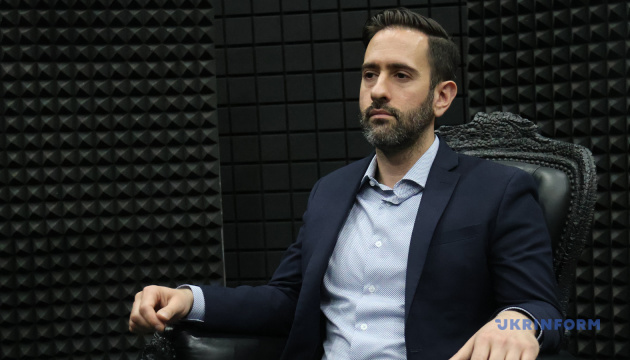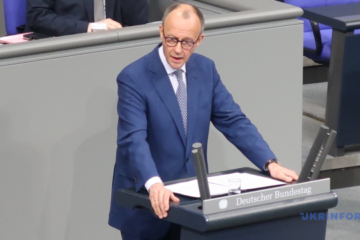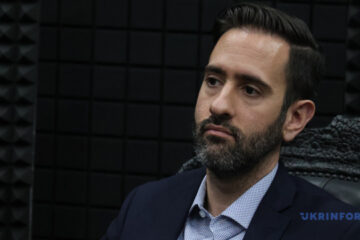
International sanctions against the Russian Federation are a significant tool for restraining Russia’s war machine in the medium term, but increasing pressure on the battlefield is urgently needed now.
This was emphasized by Eric Ciaramella, a senior fellow with the Russia and Eurasia program at the Carnegie Endowment for International Peace, in an interview with Ukrinform, commenting on the recent joint statement by four European leaders following their visit to Ukraine.
“I don’t think sanctions are the right tool. They certainly are an important tool for raising the cost to Russia of waging the war, and I think we should keep them and strengthen them. But we shouldn’t harbor illusions that sanctions are going to somehow change Putin’s calculus because he has shown that he’s willing to sustain significant losses in all sectors, including military personnel, equipment, and also economic turbulence, in order to achieve his aims towards Ukraine,” the expert said.
He believes that in the medium term, sanctions are indeed necessary to restrain Russia’s military capabilities, “but I don’t see this as a near-term credible pressure tactic,” he added.
“Credible pressure should be exerted on the battlefield. As long as the Russian army can keep making progress, even if it’s very slow progress and coming at a huge cost, there’s very little incentive on Putin’s side to stop. The way you change that is not really through sanctions, but through international assistance on the battlefield, and so I would have liked to see a European statement that was not an ultimatum about sanctions, but was really focused on supplying Ukraine with the necessary weaponry to block Russia’s offensive and hopefully turn back Russian gains,” Ciaramella stated.
As Ukrinform reported, the leaders of France, Germany, Poland, the United Kingdom, and Ukraine issued a joint statement following their meeting in Kyiv on May 10.
In particular, they agreed that a ceasefire, by definition, cannot be limited by any conditions. If Russia imposes such conditions, it can only be seen as an attempt to prolong the war and undermine diplomacy. The leaders also agreed that if Russia refuses to implement a full and unconditional ceasefire, stricter sanctions should be imposed on its banking and energy sectors, targeting fossil fuels, oil, and the so-called “shadow fleet.”
Source: U.S. expert: pressure on battlefield better than sanctions



